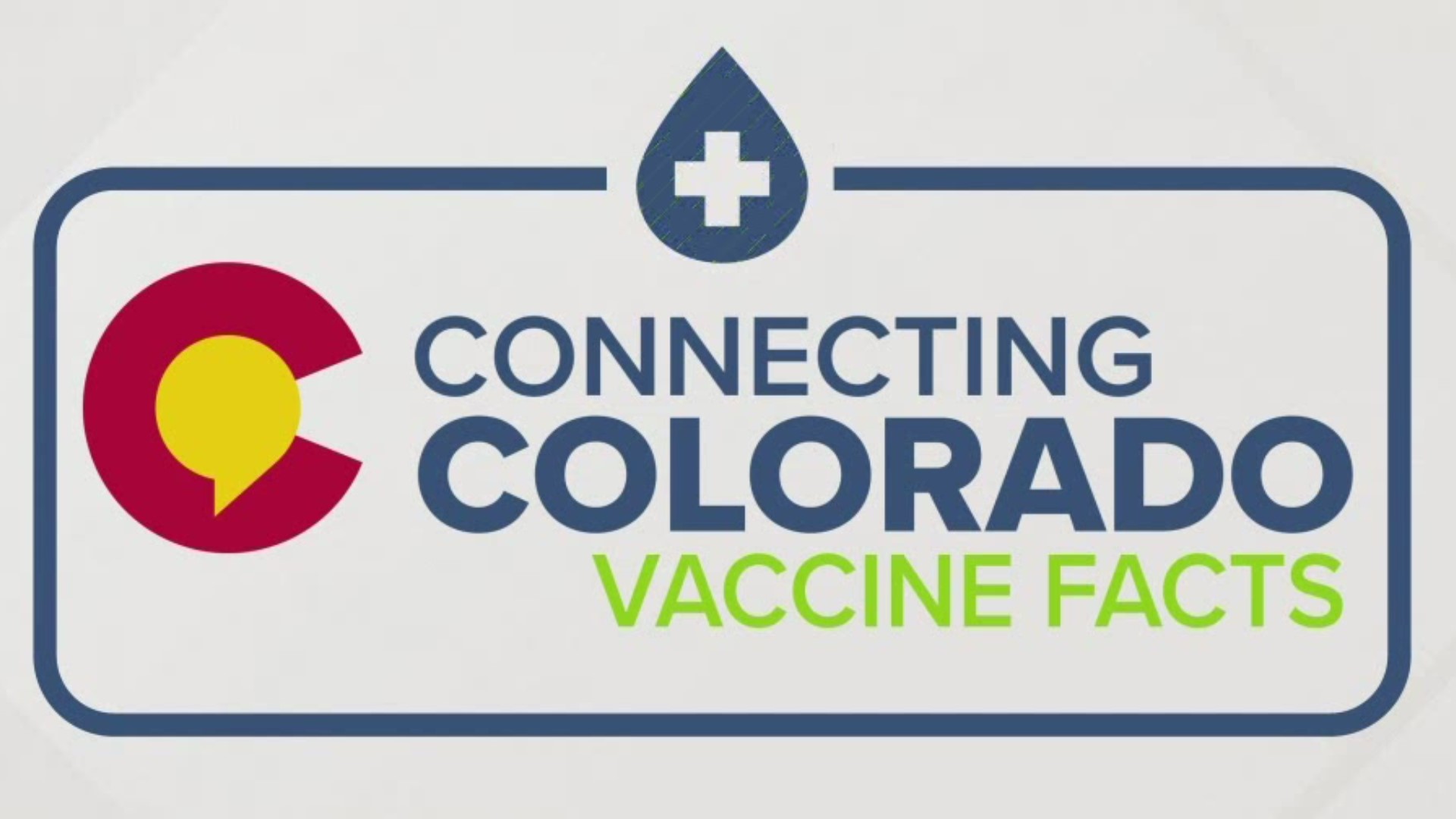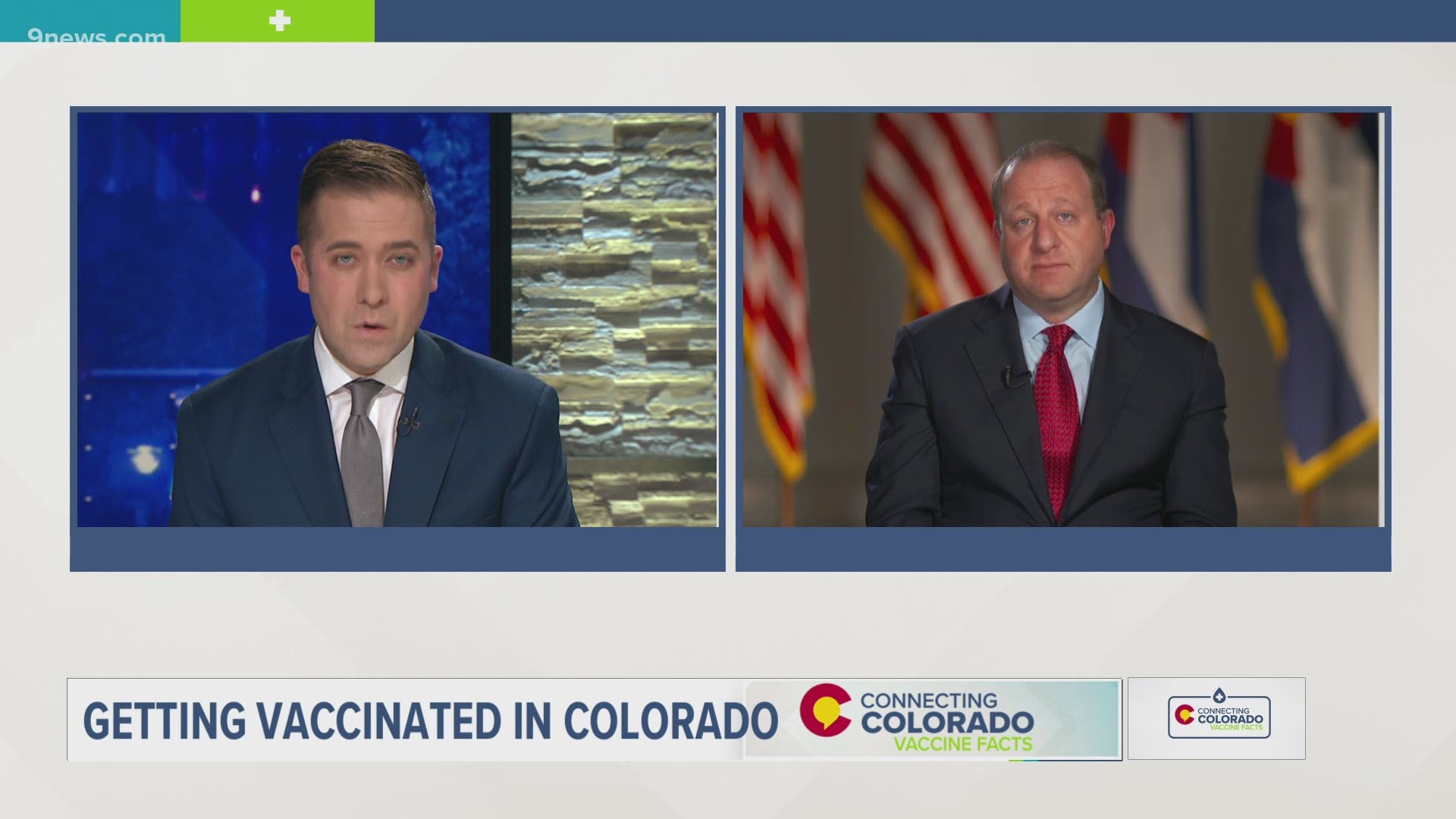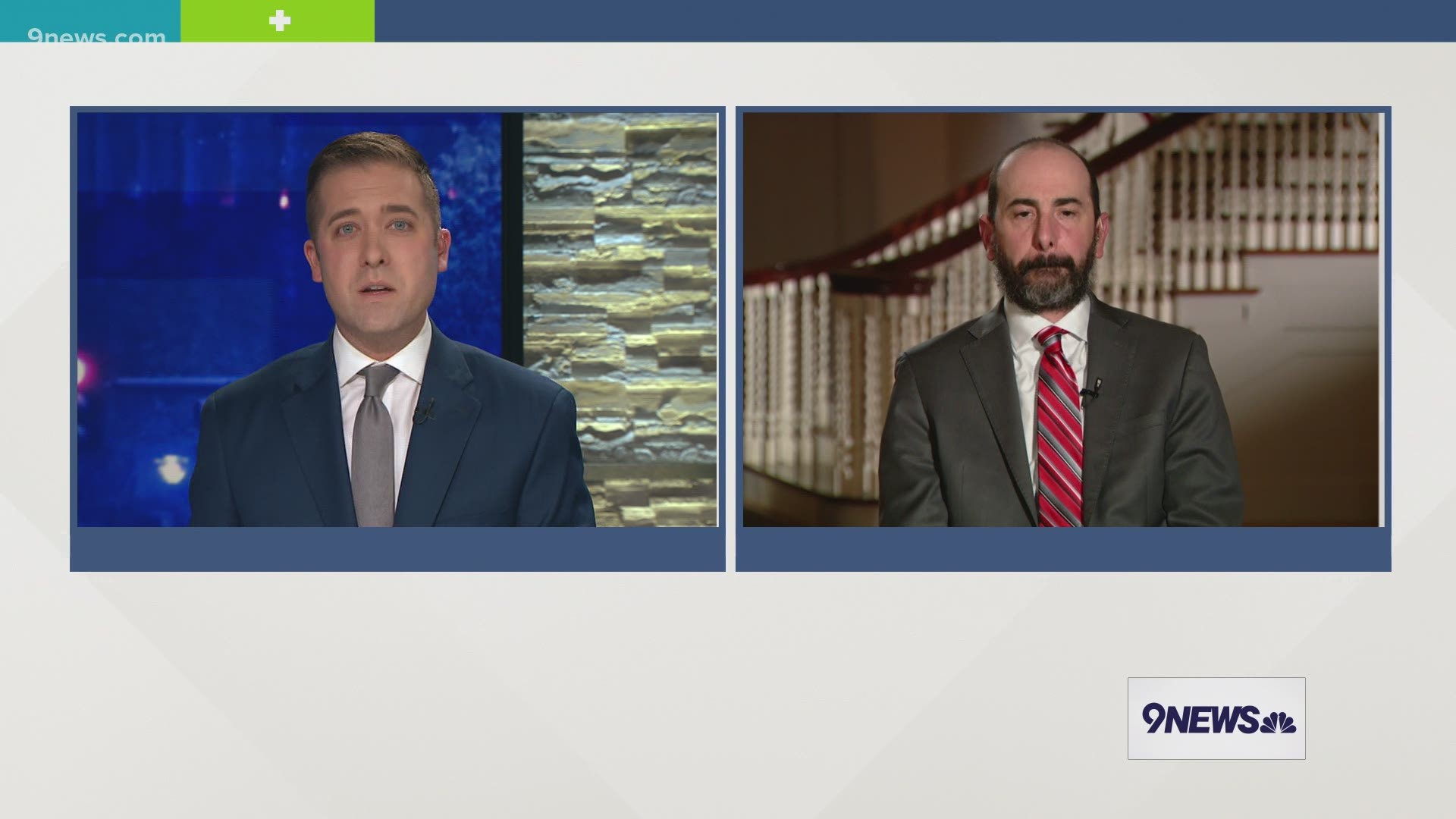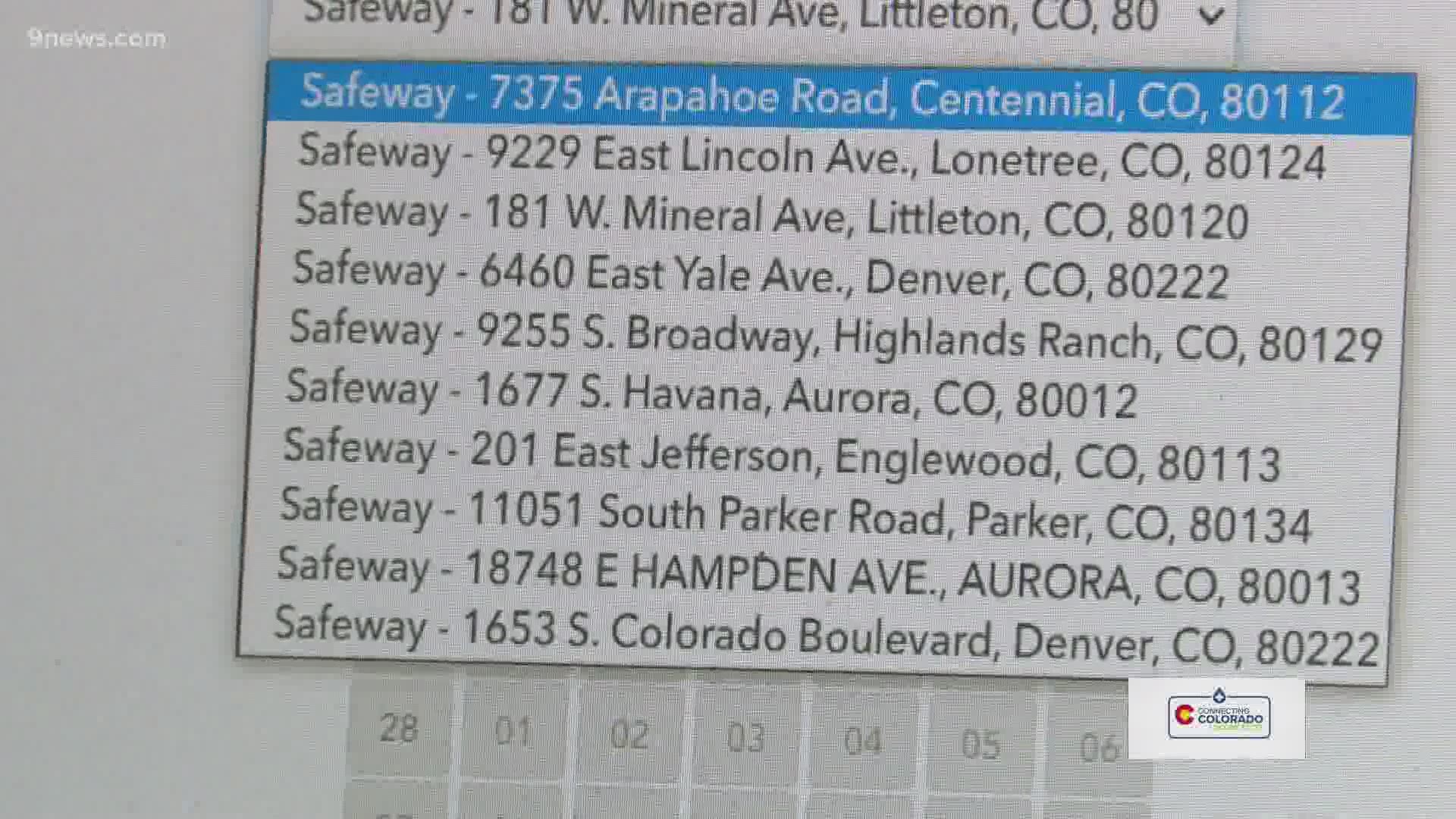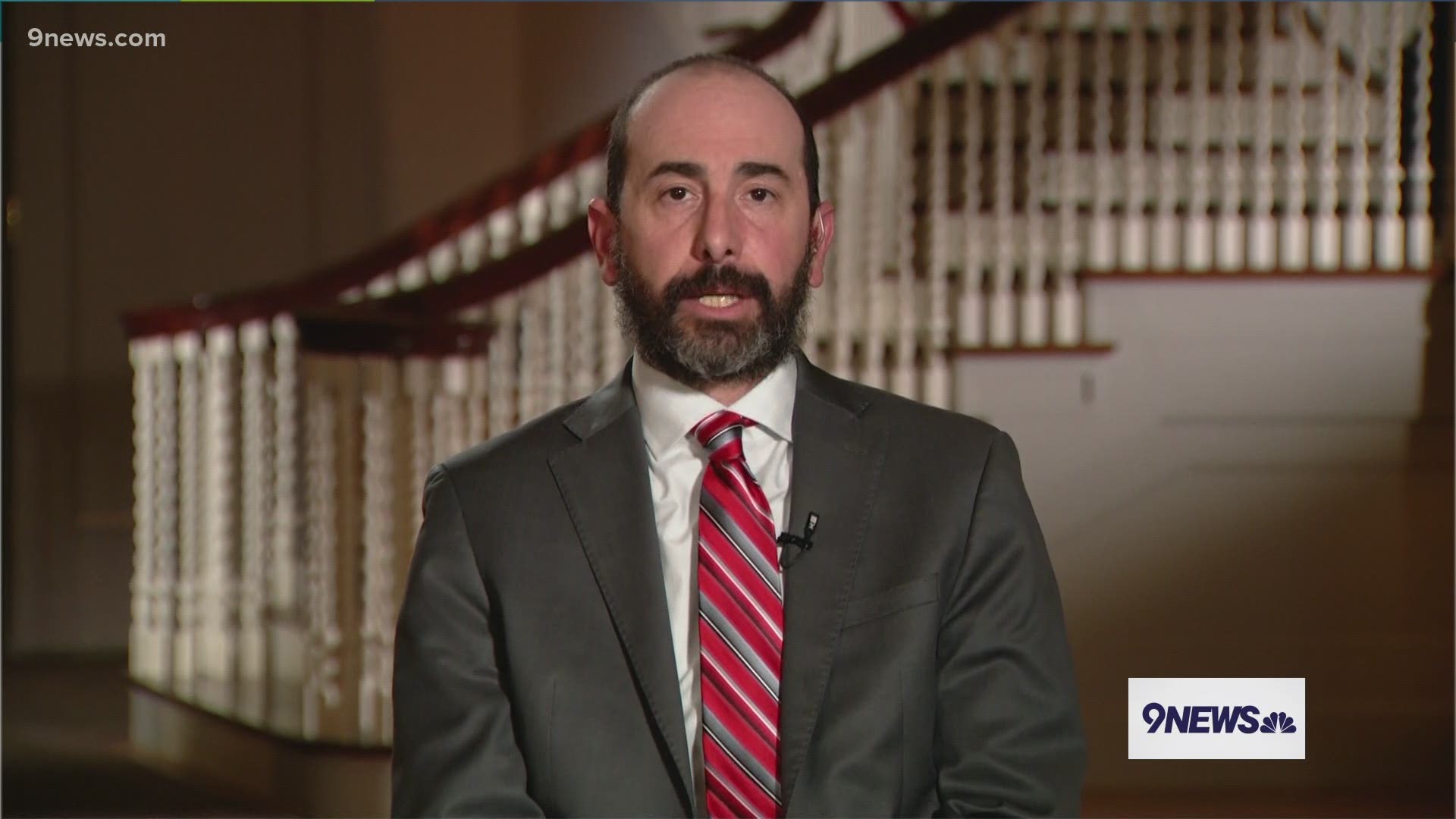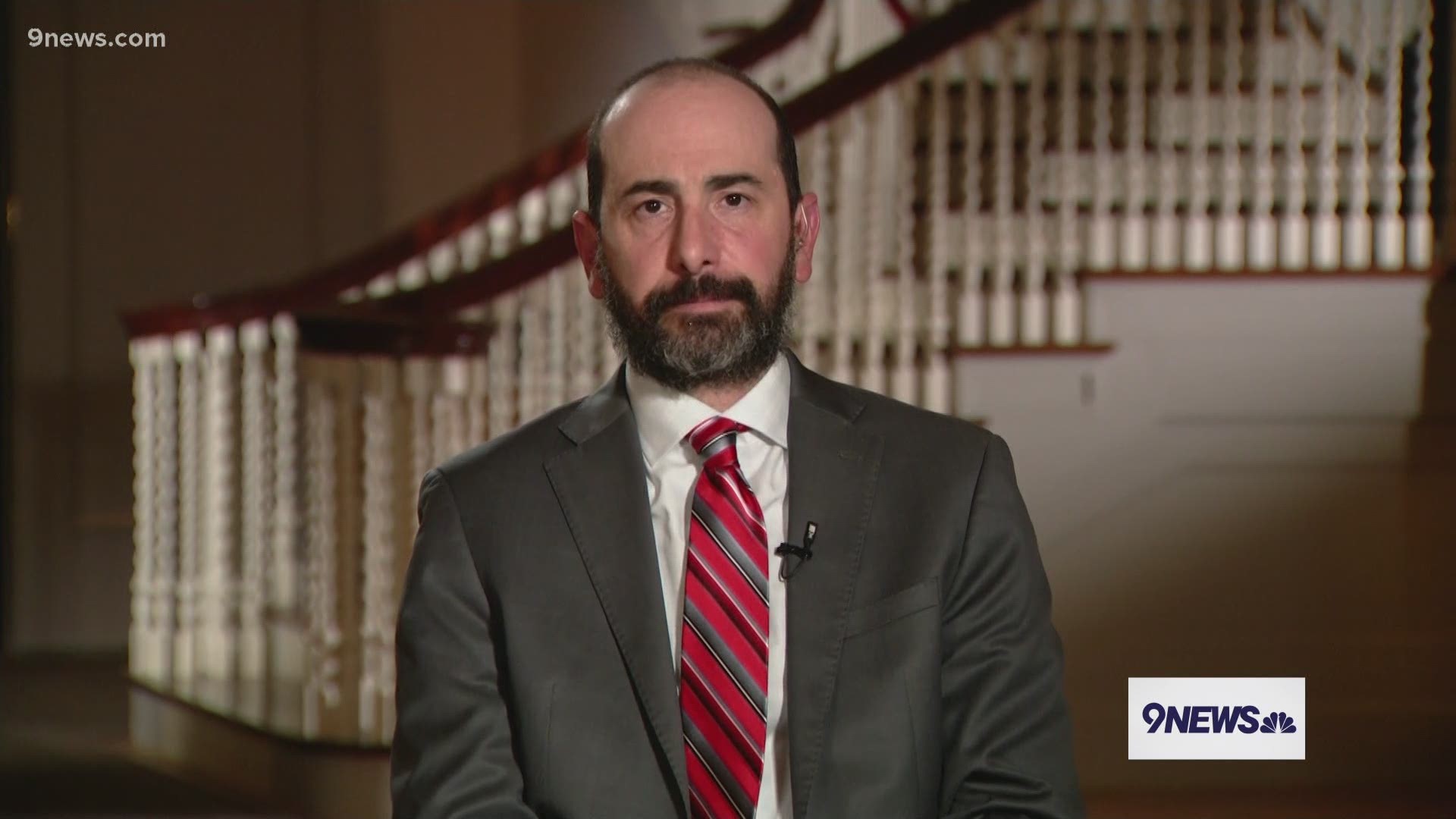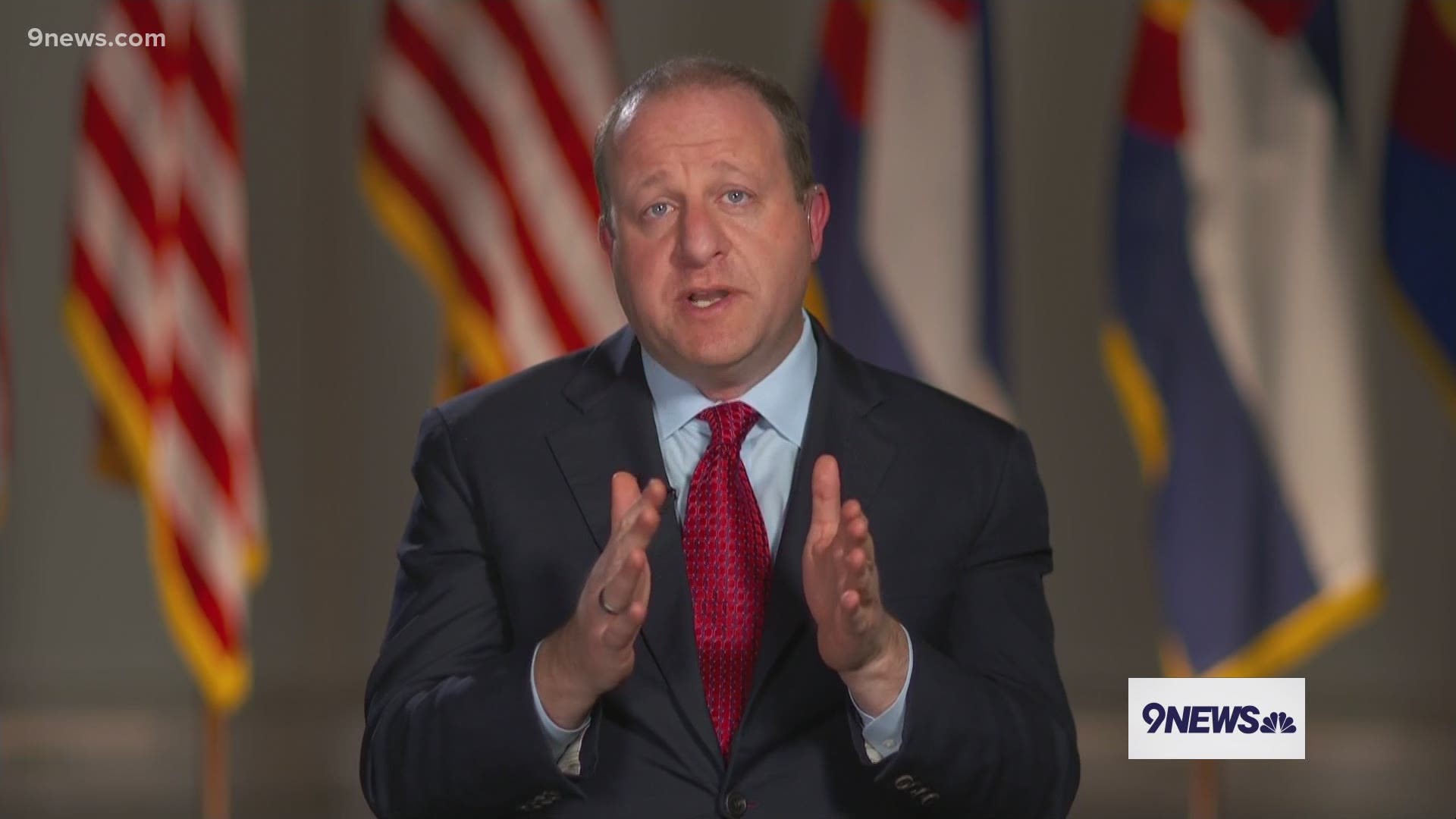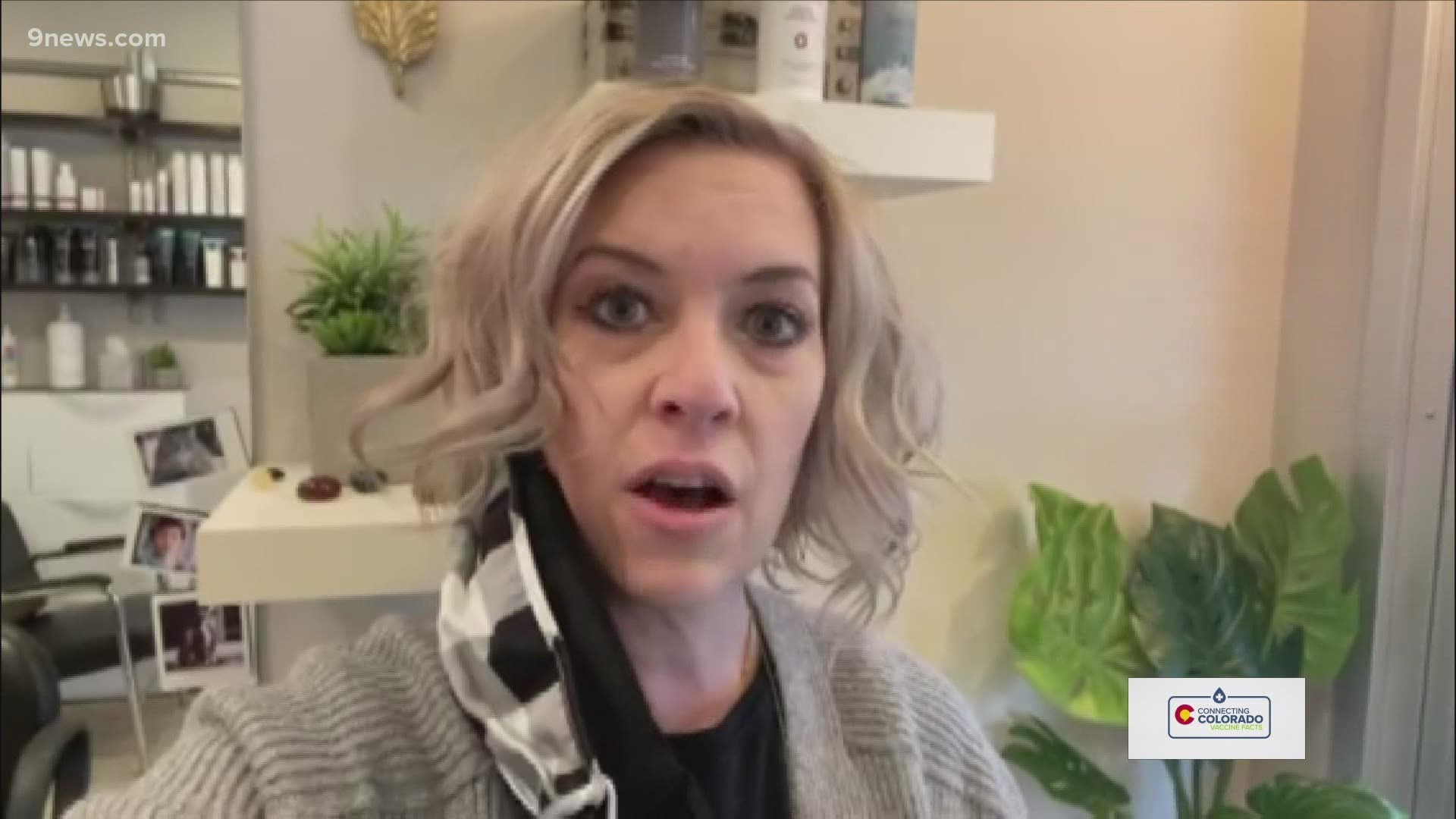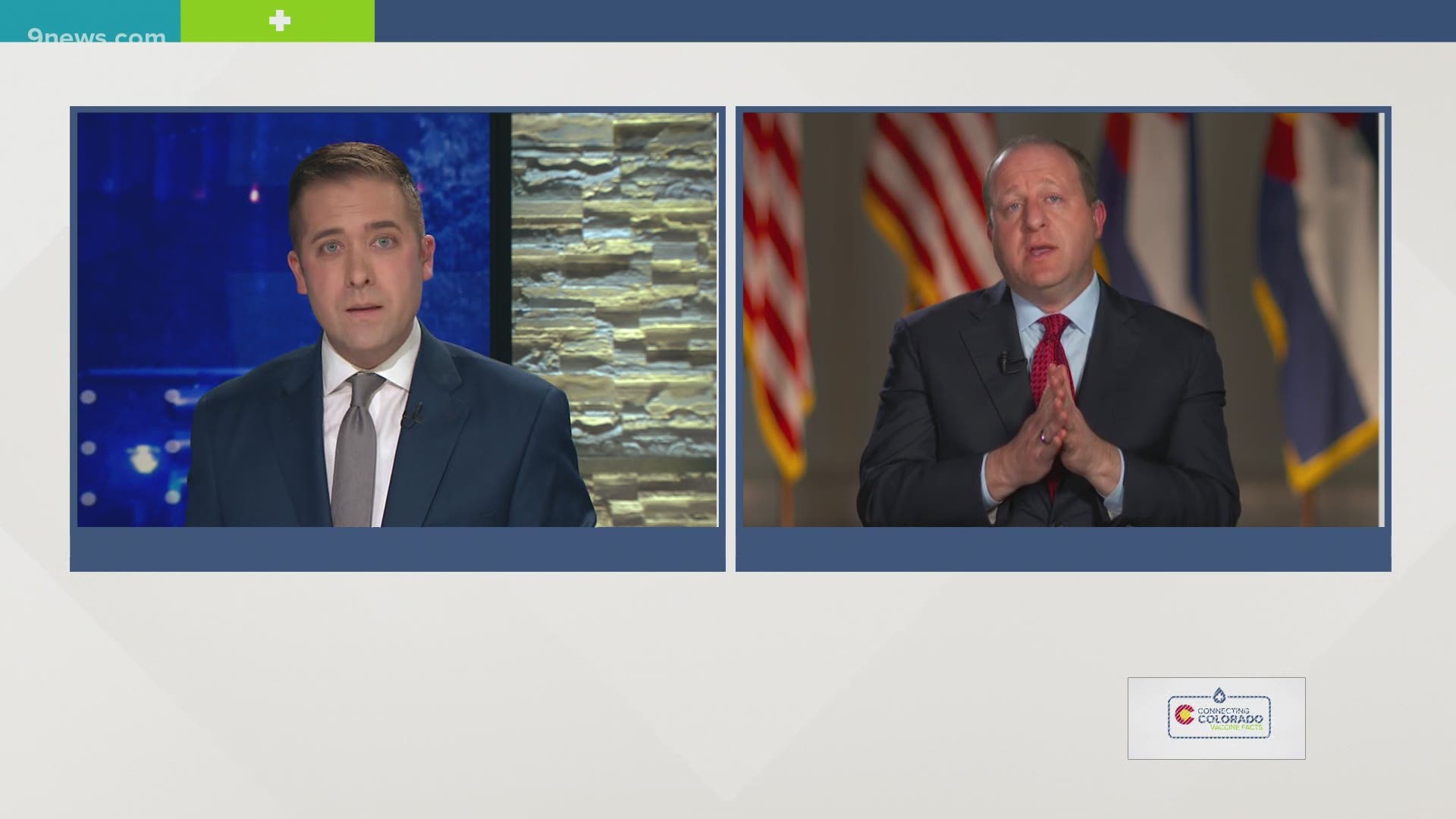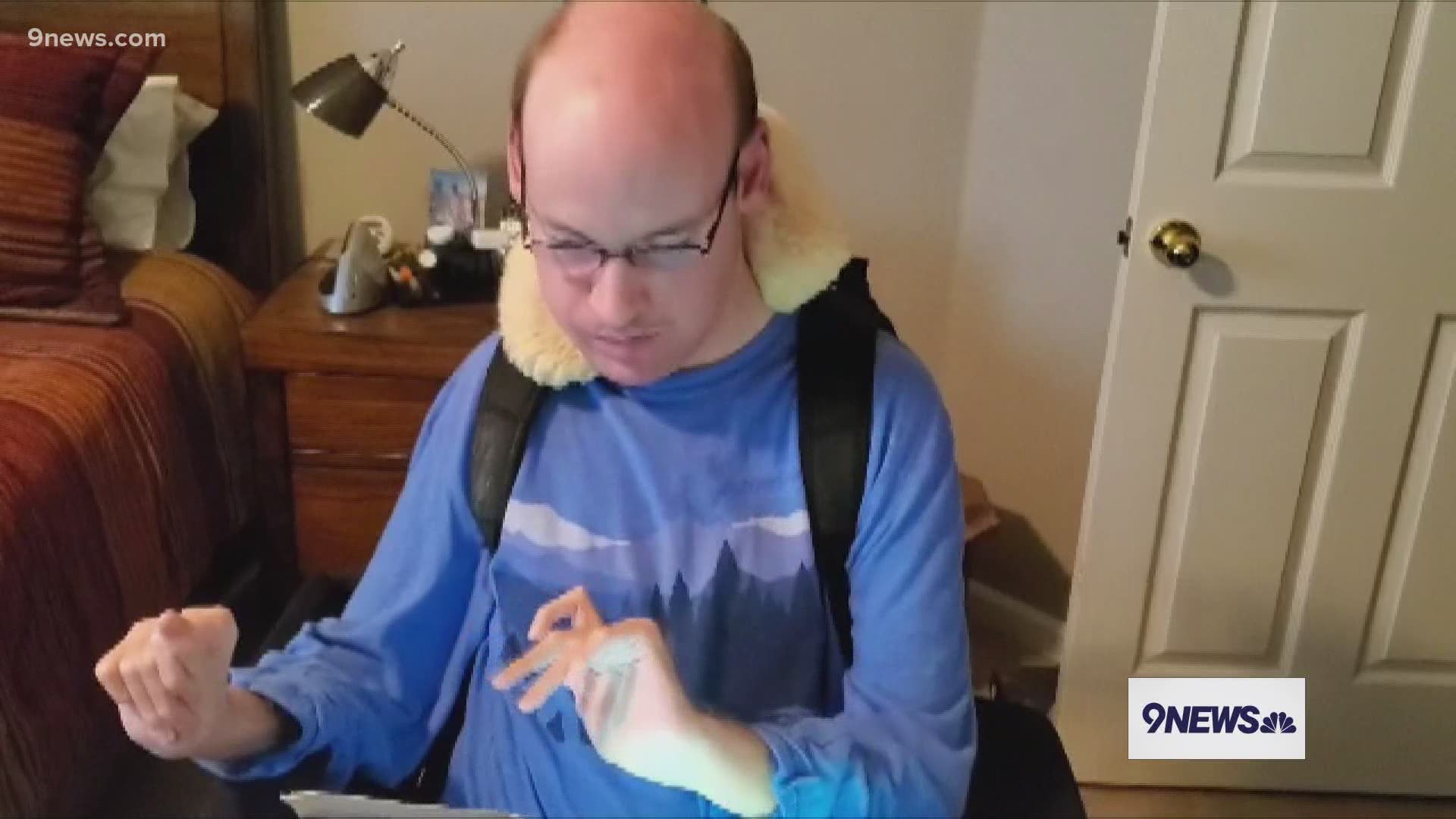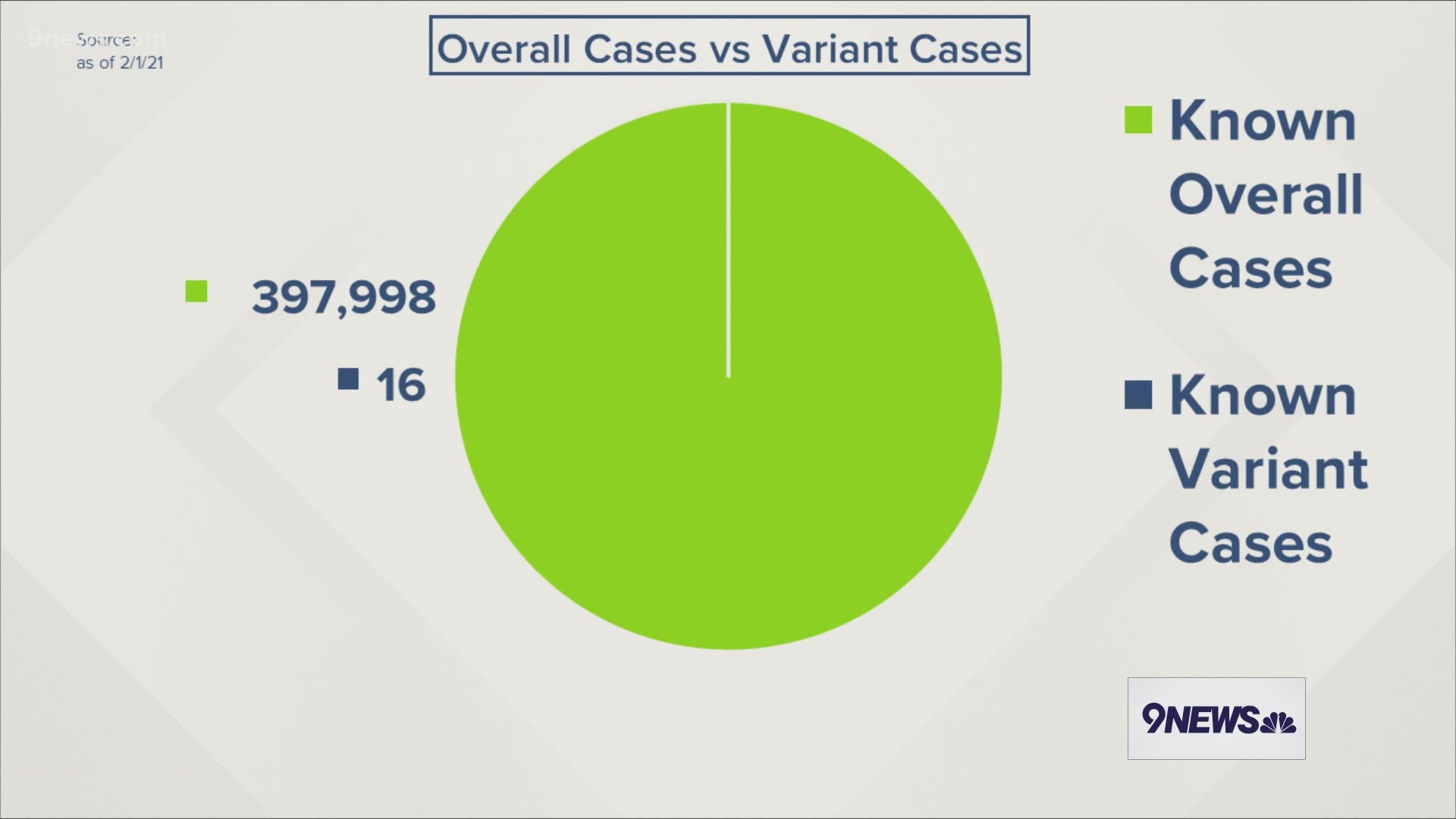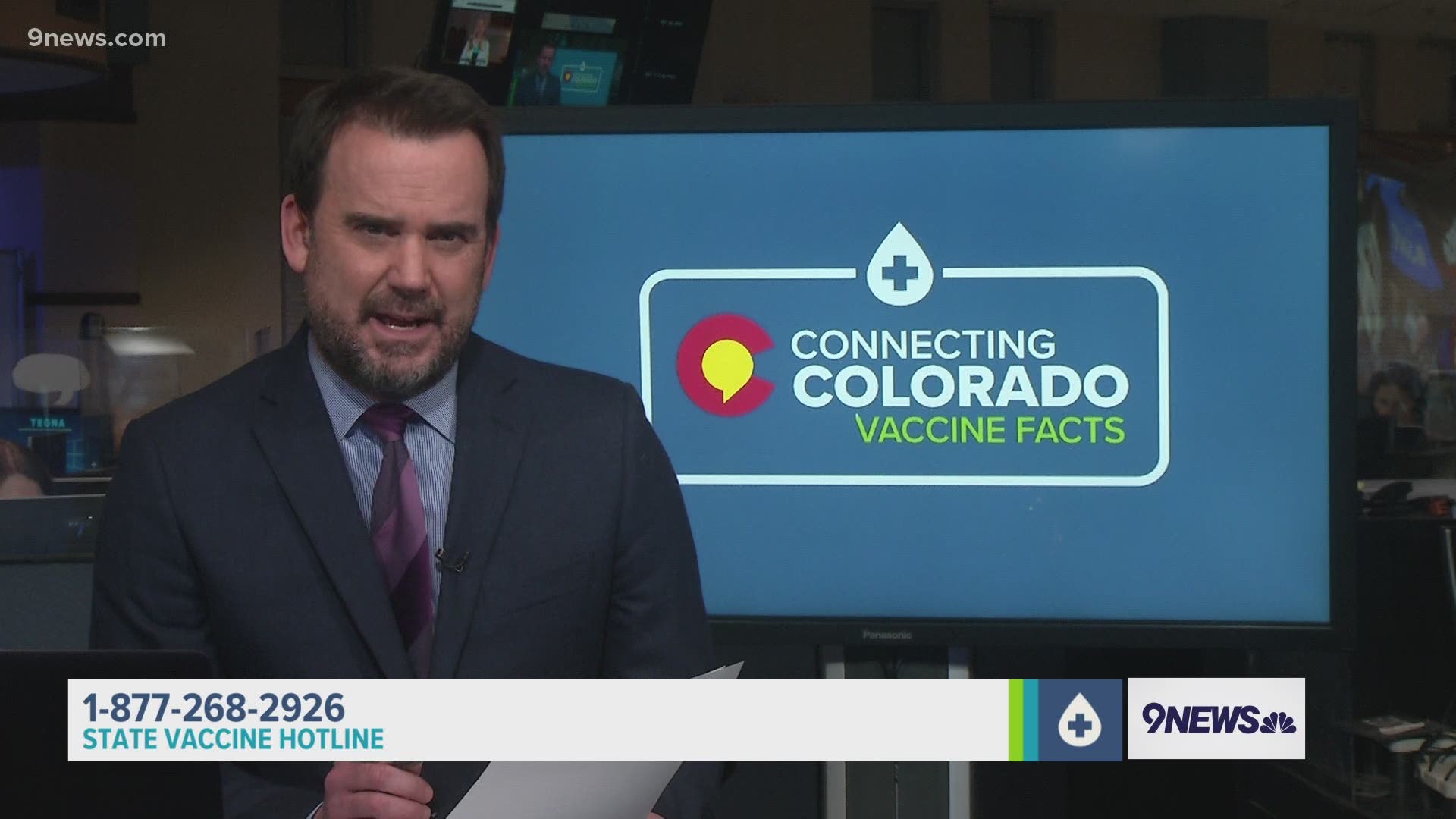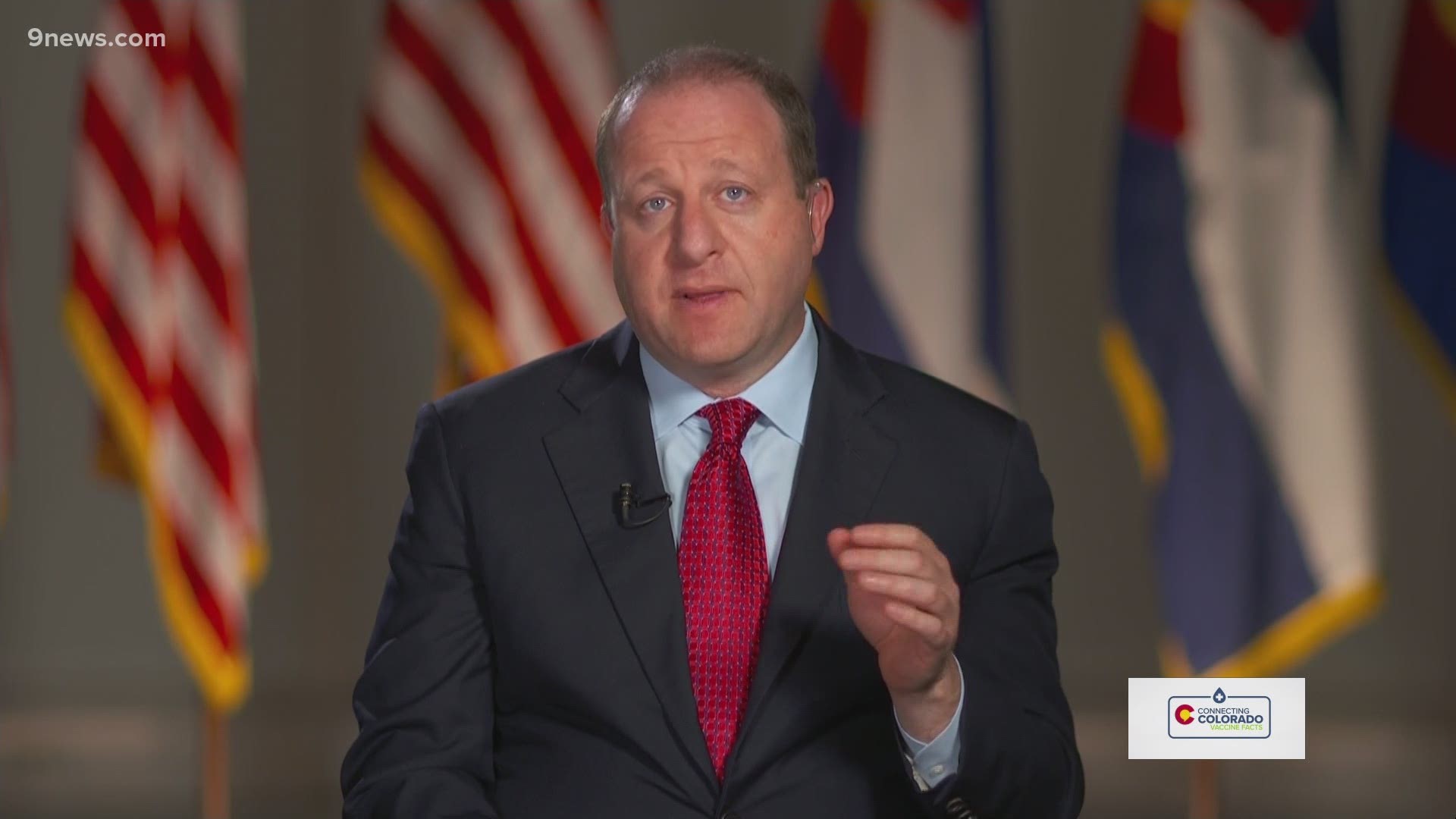DENVER — As the state continues to navigate COVID-19 inoculations, many Coloradans are looking for answers on how to get in line for the vaccine, what the process will look like and when it will be their turn.
9NEWS compiled those questions for a town hall Tuesday night with Gov. Jared Polis (D-Colorado) and other state expert panelists.
The questions and answers are below, and a replay of the event is in the video player above.
>Do you have a vaccine-related question or story idea? Email vaccine@9news.com
Colorado is currently in Phase 1A and 1B, which includes health-care workers, first-responders, staff and residents of long-term care facilities and people 70 and older.
> Video contains the main takeaways from today's town halls:
Polis recently announced that on Feb. 8, the state will start the next phase of its vaccination plan by allowing educators and individuals ages 65 to 69 to get the vaccine.
The vaccination phase starting next week is known as Phase 1B.2 and includes an estimated 408,100 people.
As of Monday, Feb. 1, a total of 464,805 Coloradans had received a first dose and 132,344 had gotten both doses of the vaccine, according to CDPHE data.
Editor's note: Answers have been edited for context and clarity.
Are there low-priority counties?
Scott Bookman, COVID-19 incident commander at CDPHE: No, there is no such thing as a low-priority county. Each week we are looking at data, we're getting vaccine doses across the state. There are communities with access issues, we are working with providers to create popup clinics and other events for those communities.
Why is it so hard to get vaccine appointments?
Polis: Sadly it’s a sign of the basic math of the situation. We received around 90,00 doses a week but Colorado has 588,000 over age 70. No matter how you break it to people, there are not enough doses to get everyone vaccinated in that first week.
We also want to make sure every dose is used within three days of the state receiving it.
Everyone 70 and up can get the vaccine by the end of February.
What are you doing about wait times for the COVID call center?
Polis: 200 minutes, 100 minutes, that is unacceptable. We want to get it down to 10 minutes on average. If you can, sign up online and leave the phone line for those who need it.
We are rapidly expanding the number of operators.
Bookman: We are continuing to expand our call center as rapidly as we can to answer questions and help navigate the system.
Would more staff help the vaccine process go faster?
Bookman: It’s not a staffing problem, it’s a vaccine supply issue. We expect supply to go up in the next weeks and months so we are taking volunteers.
How many people need to be vaccinated to reach herd immunity?
Bookman: These are all estimates right now. We hear numbers around 70% so that's what we are targeting.
Why are college professors not on the list with K-12 teachers?
Polis: We have to define each group so it's not too broad or too narrow – if there are too many people in a group, they could have to wait months for an appointment. We have to keep supply roughly aligned with demand. Some people depend on schools for their kids so they can work. It's critical in society for K-12 teachers to be vaccinated because schools play this outside function.
Everybody will get it, but not everyone can get it at once.
Has there been any consideration to add people in personal service to phase 1B.3? How about restaurant staff?
Bookman: When we look at prioritization, we look at two things:
- Can these people work from home?
- How does this group affect our overall society?
Teachers were an easy choice (they play a critical role in society). So, now it's looking at things like critical infrastructure, etc.
Restaurant workers are included in food and agriculture, when we get to that phase we will look at getting restaurant workers vaccinated at that point.
Is summer still the target for vaccines for the general population?
Polis: The dates are hazy for all of us because of the quantity. We do not know what March looks like, let alone April, May and June. Will more vaccines be approved? We don’t know any more than the vaccine supply than what's been publicly reported.
Yes, probably sometime in May and June, but it could be sooner or later.
I have Down syndrome. I have a hole in my heart. When can I get the vaccine?
CDPHE State Epidemiologist Dr. Rachel Herlihy: I would point people to the CDC which lists out, based on evidence, different conditions. These conditions we’ve identified in Colorado are based on the CDC and how they are prioritizing vaccines for certain conditions.
Should we care about COVID-19 variants right now?
Herlihy: We have different concerns over different types of variants, they could be easily transferable, there could be vaccine ineffectiveness and more serious cases. We are monitoring where and when these cases are in our state.
We feel confident at looking at these emerging strains. In addition to randomly testing samples, when we find these variants we're looking upstream to see where they came from and then contact tracing to help prevent the spread.
There is some data out of South Africa that suggests that there could be a decrease in vaccine effectiveness. At a state level, Colorado is favorable as in we are seeing cases go down. All the things Coloradans are doing now (masks, social distancing) will help slow introductions of variants into the state.
Can people still spread the virus after they are vaccinated?
Bookman:
Herlihy: Clinical trials are all based around the prevention of symptomatic infections. But there is preliminary data, especially from the Moderna trials, that does suggest that individuals who had received just one dose of the vaccine were actually 2/3 less likely to have an asymptomatic infection than those who had received the placebo.
From what we know about other viral vaccines, we do expect that the COVID-19 vaccine would prevent both symptomatic and asymptomatic infections. But like all things with COVID-19, we have more to learn.
We think it's unlikely that those who are vaccinated will still spread the virus. But we still want people to wear masks and social distance.
Is it too late to set up a single portal for every Coloradan?
Polis: We looked into this. About 80% of people over 70 were already on a list without having to sign up, based on being registered with certain health care providers already.
We didn’t want to make everyone do that. For that 20%, we have to go find them. We have to let people call for appointment in English and Spanish,
SUGGESTED VIDEOS: COVID-19 Coronavirus

